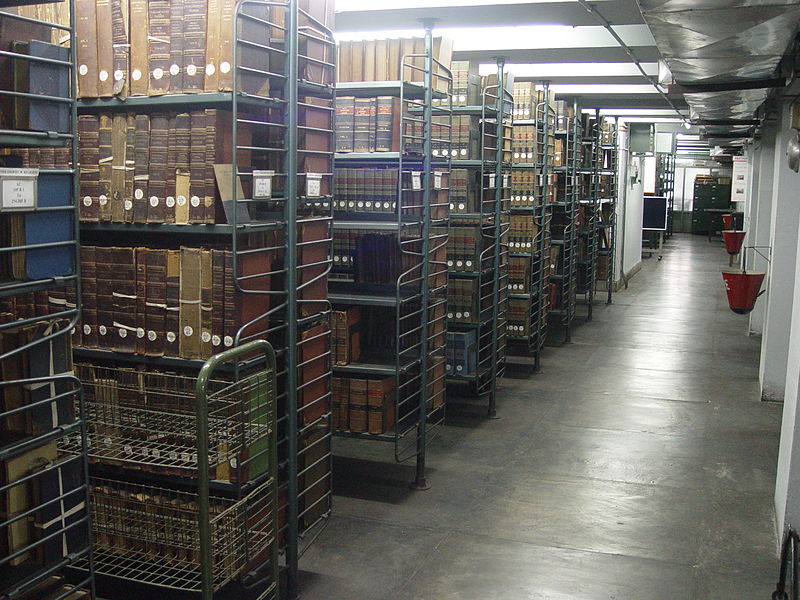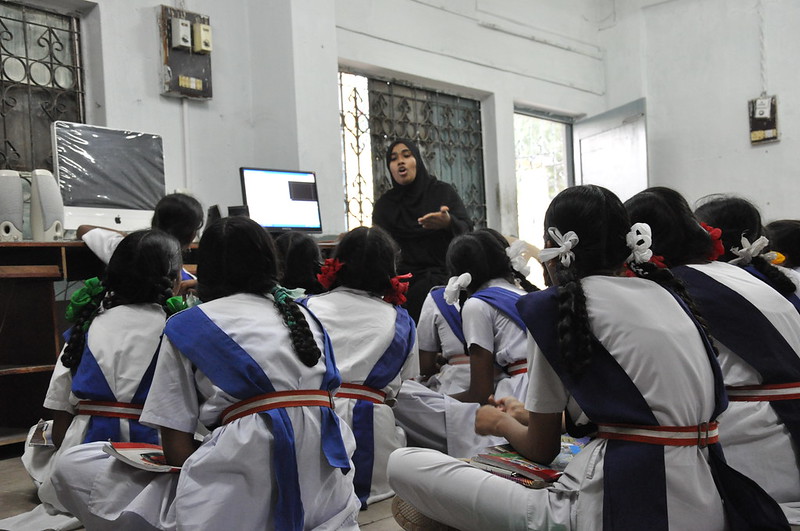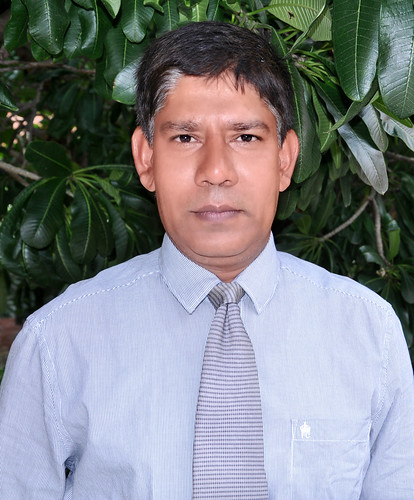UPDATE 28 April 2014: Imperial have released their subscription data – £1,340,213. This takes the Russell Group to a total of £15.7 million in subscription fees to Elsevier alone with data related to four universities still outstanding.
What could the UK academic community do with £14.5 million? That is the same as the yearly tuition fees for over 1600 undergraduates paying £9,000 fees.
And that is what just 19 Universities in the UK are spending in total during a single year on journal subscriptions to a single publisher.
The act of publishing research has an intrinsic cost, and I don’t know anyone who claims otherwise. However, the key questions we as an academic community should be asking is how much this publishing process costs, and if we are receiving value for money.
But we can’t answer these questions. Because we don’t know how much academic publishing costs.
Historically, the costs of scientific research publication have been covered through subscriptions to academic journals in which the research has been published. Alternative business models are beginning to develop, but the majority of research around the world is still published in journals to which subscriptions are required.
Individual academics are largely protected from the costs of access to these journals. Libraries at universities are largely responsible for managing institution wide access to journals, and through JISC negotiate these subscription costs.
And then libraries are not allowed to tell anyone what these costs are. Libraries are placed under huge amounts of pressure not to release this data, and in the case of Elsevier, they are explicitly forbidden to by non-disclosure agreements in the contracts they have to sign.
Today, Tim Gowers has released data showing that 19 Russell Group Universities alone spend over £14.4 million (excluding VAT) on subscriptions to journals published by Elsevier alone. Without a doubt you should read his blog post which has far more detail and background; but the headline figures are:
|
University
|
Cost
|
|
Birmingham
|
£764,553
|
|
Bristol
|
£808,840
|
|
Cambridge
|
£1,161,571
|
|
Cardiff
|
£720,533
|
|
*Durham
|
£461,020
|
|
**Edinburgh
|
£845,000
|
|
*Exeter
|
£234,126
|
|
Glasgow
|
£686,104
|
|
King’s College London
|
£655,054
|
|
Leeds
|
£847,429
|
|
London School of Economics
|
Not released data
|
|
Liverpool
|
£659,796
|
|
Manchester
|
£1,257,407
|
|
Nottingham
|
Not released data
|
|
Newcastle
|
£974,930
|
|
Oxford
|
Not released data
|
|
Queen Mary University of London
|
Not released data
|
|
Queen’s Universty Belfast
|
£584,020
|
|
Sheffield
|
£562,277
|
|
Southampton
|
£766,616
|
|
UCL
|
£1,381,380
|
|
Warwick
|
£631,851
|
|
*York
|
£400,445
|
*Joined the Russell Group two years ago.
**Information obtained by Sean Williams.
Data taken from Tim Gowers blog post found here
This data, acquired through Freedom of Information requests, has focussed upon the Russell Group, but excludes data from Imperial College London, London School of Economics and Political Science, Nottingham, Oxford, and Queen Mary University of London who declined to release their data. And many of these of these are unlikely to be be small spenders. This means that the total figure for the Russell Group will be significantly higher than the £14.4 million stated above.
Non-disclosure clauses, included by Elsevier within the contracts have previously prevented libraries from releasing this data, and even from discussing the figures with other libraries or academics within their own University, and the release of this data is likely to cause much comment among libraries and academics.
There are large differences between different institutions – for instance Exeter is paying roughly a sixth of the costs being paid by University College London, with UCL spending £1,381,380 (that’s the yearly fees from 150 undergraduates). As Tim mentions in his in-depth analysis, it’s interesting to note that the institutions paying the lowest fees are those institutions who have only recently joined the Russell Group.
While a bound physical copy was the only means of communicating written research over a distance, and was a huge development in 1665 with the publication of the first scientific journal, the ‘Philosophical Transactions of the Royal Society’, the idea of journal subscriptions in return for access to academic research is understandable. There were large infrastructure costs involved.
However, the Internet has created opportunity for significantly reduced distribution costs. Distributing ‘copies’ of digital work costs very little once initial costs have been covered, and given that this is the way many academics access research within the University, there is no justifiable reason why publishers should charge such widely different access fees to universities.
Journal subscriptions are not the only cost to Universities for publishing research. As a transition towards open access is made, author processing charges (APCs) are common; especially in the UK where the Research Councils, Wellcome Trust and other funders have mandated that academics make their research freely and openly available at point of publication.
However, this APC data is also not available, which means we can’t see how much money is flowing to publishers. And is is especially important in the case of many high profile and prestigious journals which are what are termed ‘hybrid journals’. These are journals in which some articles are freely available to read after receipt of an APC, but a subscription is still required to read the remainder.
No data is currently made available that shows how much UK academics are paying to publish in an open access fashion, either in pure open access journals, or these ‘hybrid journals’. However, data released last month shows that in 2012-2013 alone, the Wellcome Trust alone spent over £1 million on articles published in Elsevier journals – of which nearly 95% was in journals to which an academic library had to also pay a subscription.
And yet this is only a small piece of the picture; we still don’t know how much is being spent on APCs by other public funded research streams such as from the Research Councils or HEFCE.
In a time of decreasing research funding from Government (given UK inflation rates the flat-line research budget results in a real terms cut), and increased onus on students as a source of income, what is an acceptable cost for publication of research? Be that cost met through journal subscriptions or an open access business model. And to whom should we be paying that money?
These conversations are rarely had; partly through lack of information, and partly through the disinterest of many academics. And traditional publishers such as Elsevier benefit significantly and exploit the disinterest of many academics in this space. They take work largely funded by the taxpayer, carried out within publicly funded institutions, and then sell it back to this institution, and every other willing/able institution around the world. And then actively work to prevent libraries from releasing information that may begin to establish a competitive market in this space.
To an advantage of many millions of pounds a year. Elsevier alone is charging £14.4 million to 19 universities in the UK – and will be gaining literally millions more from the other 100 universities in the country. They are also gaining millions of pounds in APCs.
And that’s just one publisher. There are countless other traditional publishers to whom academic libraries pay subscriptions; Wiley, Oxford University Press, Nature Publishing Group, and Springer just to name a few. And none of this data is out there. No-one knows how much money is being drained from the academic university budgets (either from research grants, or indirect money received through HEFCE grants or student tuition fees) to the financial benefit of these for-profit publishers.
We need to get a full picture of the costs of academic publishing – both the costs incurred through journal subscriptions and through APCs. While the focus of Tim’s work has been Elsevier, I’ve submitted Freedom of Information requests to Russell Group Universities asking for journal subscription data for Wiley, Oxford University Press and Springer, and I’ll be making this data available if/when it is released. I will also provide information where libraries do not honour their obligations under FOI, do not accept that this information is in the public interest, and what reasons are they give.
And it is without doubt in the public interest to have data that can show the cost of publication made openly available. Without this, there can be no development of competitive markets in either subscriptions or APCs. A chilling effect, created by commercial publishers and non-disclosure clauses, requiring a lack of transparency cannot serve anything other than other than the business interests of traditional publishers.
 Open Access Working Group
Open Access Working Group 





The cost of academic publishing
Michelle Brook - April 24, 2014 in Comment
UPDATE 28 April 2014: Imperial have released their subscription data – £1,340,213. This takes the Russell Group to a total of £15.7 million in subscription fees to Elsevier alone with data related to four universities still outstanding.
What could the UK academic community do with £14.5 million? That is the same as the yearly tuition fees for over 1600 undergraduates paying £9,000 fees.
And that is what just 19 Universities in the UK are spending in total during a single year on journal subscriptions to a single publisher.
The act of publishing research has an intrinsic cost, and I don’t know anyone who claims otherwise. However, the key questions we as an academic community should be asking is how much this publishing process costs, and if we are receiving value for money.
But we can’t answer these questions. Because we don’t know how much academic publishing costs.
Historically, the costs of scientific research publication have been covered through subscriptions to academic journals in which the research has been published. Alternative business models are beginning to develop, but the majority of research around the world is still published in journals to which subscriptions are required.
Individual academics are largely protected from the costs of access to these journals. Libraries at universities are largely responsible for managing institution wide access to journals, and through JISC negotiate these subscription costs.
And then libraries are not allowed to tell anyone what these costs are. Libraries are placed under huge amounts of pressure not to release this data, and in the case of Elsevier, they are explicitly forbidden to by non-disclosure agreements in the contracts they have to sign.
Today, Tim Gowers has released data showing that 19 Russell Group Universities alone spend over £14.4 million (excluding VAT) on subscriptions to journals published by Elsevier alone. Without a doubt you should read his blog post which has far more detail and background; but the headline figures are:
University
Cost
Birmingham
£764,553
Bristol
£808,840
Cambridge
£1,161,571
Cardiff
£720,533
*Durham
£461,020
**Edinburgh
£845,000
*Exeter
£234,126
Glasgow
£686,104
King’s College London
£655,054
Leeds
£847,429
London School of Economics
Not released data
Liverpool
£659,796
Manchester
£1,257,407
Nottingham
Not released data
Newcastle
£974,930
Oxford
Not released data
Queen Mary University of London
Not released data
Queen’s Universty Belfast
£584,020
Sheffield
£562,277
Southampton
£766,616
UCL
£1,381,380
Warwick
£631,851
*York
£400,445
*Joined the Russell Group two years ago.
**Information obtained by Sean Williams.
Data taken from Tim Gowers blog post found here
This data, acquired through Freedom of Information requests, has focussed upon the Russell Group, but excludes data from Imperial College London, London School of Economics and Political Science, Nottingham, Oxford, and Queen Mary University of London who declined to release their data. And many of these of these are unlikely to be be small spenders. This means that the total figure for the Russell Group will be significantly higher than the £14.4 million stated above.
Non-disclosure clauses, included by Elsevier within the contracts have previously prevented libraries from releasing this data, and even from discussing the figures with other libraries or academics within their own University, and the release of this data is likely to cause much comment among libraries and academics.
There are large differences between different institutions – for instance Exeter is paying roughly a sixth of the costs being paid by University College London, with UCL spending £1,381,380 (that’s the yearly fees from 150 undergraduates). As Tim mentions in his in-depth analysis, it’s interesting to note that the institutions paying the lowest fees are those institutions who have only recently joined the Russell Group.
While a bound physical copy was the only means of communicating written research over a distance, and was a huge development in 1665 with the publication of the first scientific journal, the ‘Philosophical Transactions of the Royal Society’, the idea of journal subscriptions in return for access to academic research is understandable. There were large infrastructure costs involved.
However, the Internet has created opportunity for significantly reduced distribution costs. Distributing ‘copies’ of digital work costs very little once initial costs have been covered, and given that this is the way many academics access research within the University, there is no justifiable reason why publishers should charge such widely different access fees to universities.
Journal subscriptions are not the only cost to Universities for publishing research. As a transition towards open access is made, author processing charges (APCs) are common; especially in the UK where the Research Councils, Wellcome Trust and other funders have mandated that academics make their research freely and openly available at point of publication.
However, this APC data is also not available, which means we can’t see how much money is flowing to publishers. And is is especially important in the case of many high profile and prestigious journals which are what are termed ‘hybrid journals’. These are journals in which some articles are freely available to read after receipt of an APC, but a subscription is still required to read the remainder.
No data is currently made available that shows how much UK academics are paying to publish in an open access fashion, either in pure open access journals, or these ‘hybrid journals’. However, data released last month shows that in 2012-2013 alone, the Wellcome Trust alone spent over £1 million on articles published in Elsevier journals – of which nearly 95% was in journals to which an academic library had to also pay a subscription.
And yet this is only a small piece of the picture; we still don’t know how much is being spent on APCs by other public funded research streams such as from the Research Councils or HEFCE.
In a time of decreasing research funding from Government (given UK inflation rates the flat-line research budget results in a real terms cut), and increased onus on students as a source of income, what is an acceptable cost for publication of research? Be that cost met through journal subscriptions or an open access business model. And to whom should we be paying that money?
These conversations are rarely had; partly through lack of information, and partly through the disinterest of many academics. And traditional publishers such as Elsevier benefit significantly and exploit the disinterest of many academics in this space. They take work largely funded by the taxpayer, carried out within publicly funded institutions, and then sell it back to this institution, and every other willing/able institution around the world. And then actively work to prevent libraries from releasing information that may begin to establish a competitive market in this space.
To an advantage of many millions of pounds a year. Elsevier alone is charging £14.4 million to 19 universities in the UK – and will be gaining literally millions more from the other 100 universities in the country. They are also gaining millions of pounds in APCs.
And that’s just one publisher. There are countless other traditional publishers to whom academic libraries pay subscriptions; Wiley, Oxford University Press, Nature Publishing Group, and Springer just to name a few. And none of this data is out there. No-one knows how much money is being drained from the academic university budgets (either from research grants, or indirect money received through HEFCE grants or student tuition fees) to the financial benefit of these for-profit publishers.
We need to get a full picture of the costs of academic publishing – both the costs incurred through journal subscriptions and through APCs. While the focus of Tim’s work has been Elsevier, I’ve submitted Freedom of Information requests to Russell Group Universities asking for journal subscription data for Wiley, Oxford University Press and Springer, and I’ll be making this data available if/when it is released. I will also provide information where libraries do not honour their obligations under FOI, do not accept that this information is in the public interest, and what reasons are they give.
And it is without doubt in the public interest to have data that can show the cost of publication made openly available. Without this, there can be no development of competitive markets in either subscriptions or APCs. A chilling effect, created by commercial publishers and non-disclosure clauses, requiring a lack of transparency cannot serve anything other than other than the business interests of traditional publishers.
Tags: cost, open access, publishing, Russell Group, UK 24 Comments »